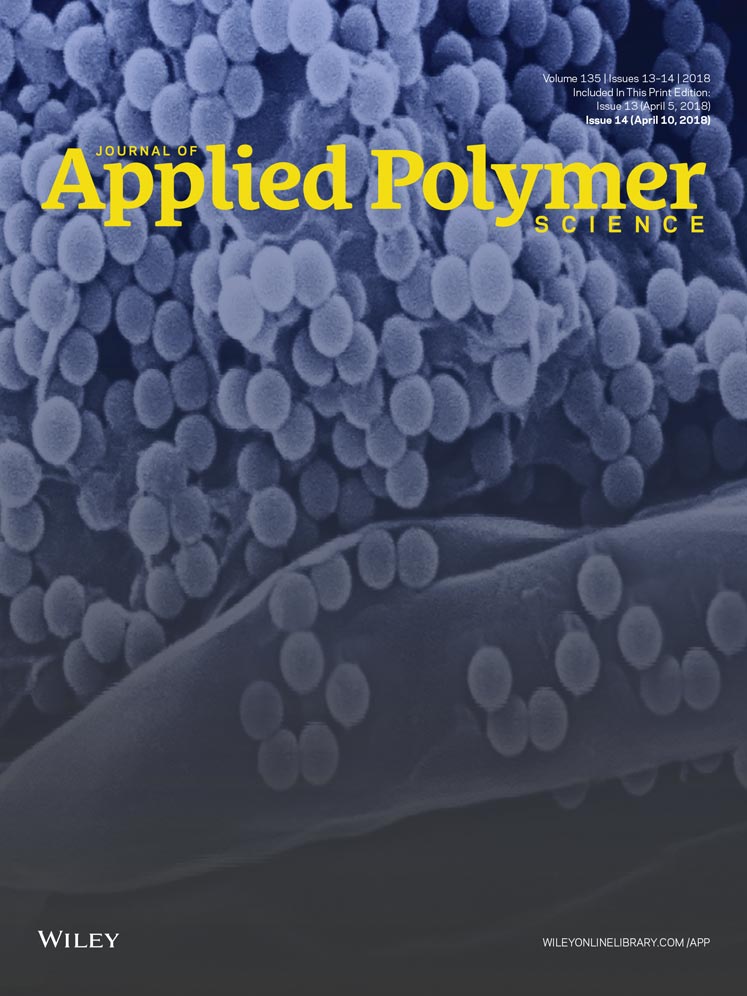A novel thermosensitive triblock copolymer from 100% renewably sourced poly(trimethylene ether) glycol
ABSTRACT
Bio-based amphiphilic triblock copolymers with 100% renewably sourced poly(trimethylene ether) glycol (PO3G) as the hydrophobic blocks and statistical copolymer of 2-(2-methoxyethoxy)ethyl methacrylate (MEO2MA) and oligo(ethylene glycol)methacrylate (OEGMA) [P(MEO2MA-stat-OEGMA)] as the hydrophilic blocks are synthesized and characterized. It is found that the molar ratio of MEO2MA/OEGMA among the resulting copolymers is approximately 70/30. The degree of polymerization (DP) of P(MEO2MA-stat-OEGMA) block ranges from 16 to 90, and the DP of PO3G block is fixed at 35. The amphiphilic copolymers could form core-shell micelles self-assembly in aqueous solution at low concentrations, and the micelles are in spherical shape with sizes varying from 121 to 188 nm. With the increasing length of hydrophilic blocks, the critical micelle concentration increases from 2.15 to 13.8 mg L−1, and the lower critical solution temperature improves from 32.5 to 38.4 °C. The in vitro doxorubicin (DOX) release study shows that all DOX-loaded micelles have a higher release rate at 37 °C than that at 25 °C. Cytotoxicity test reveals that the blank micelles are nearly nontoxic. These results indicate that the block copolymer micelles containing 100% renewably sourced PO3G can serve as a potential drug delivery carrier. © 2017 Wiley Periodicals, Inc. J. Appl. Polym. Sci. 2018, 135, 46112.




